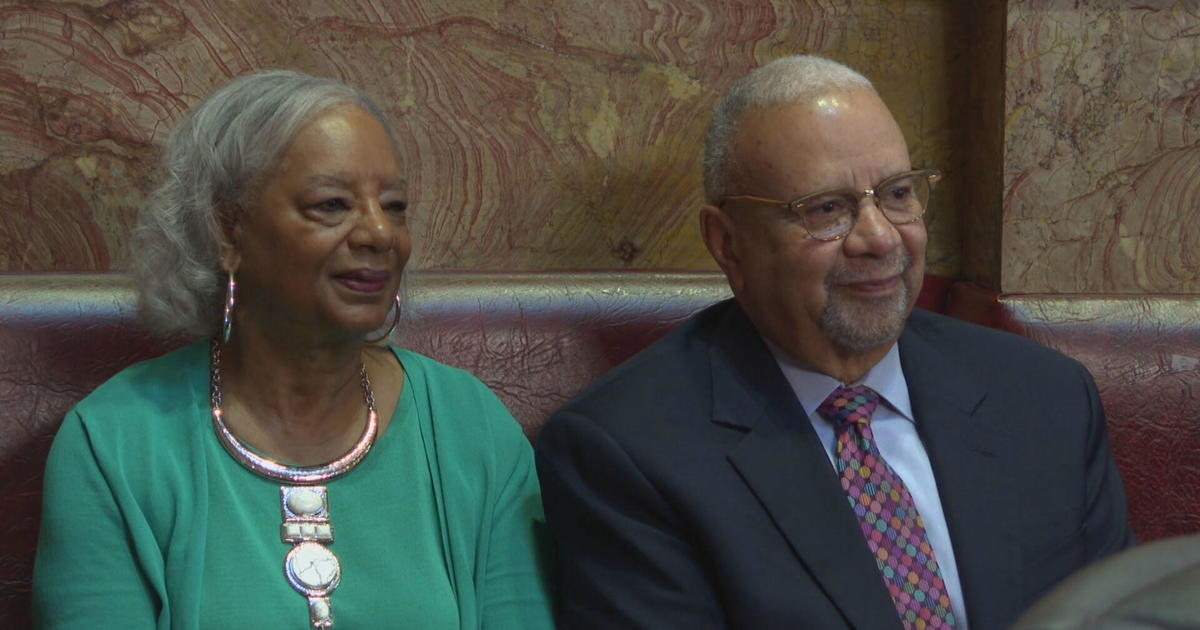Colorado Telecom Overhaul In Doubt This Year
DENVER (AP) - Republicans and Democrats joined forces this spring to try to undo a massive payout to telephone companies that goes back to the days when most people had landlines and few provider options.
The overhaul would gradually eliminate a ratepayer subsidy worth about $54 million annually, but not before giving some money back to consumers and creating a fund to expand broadband coverage in rural areas.
"I want to subsidize 21st century technology, not 18th century technology," said Senate Democratic Leader John Morse, who has been negotiating with bill sponsors for several weeks as lawmakers wrangle over how much money to invest in broadband.
Sponsors suggested creating a $25 million fund for broadband. Morse wants more than $200 million.
Now the proposal seems doomed as the legislative session winds down. And though the bill has bipartisan support, it has critics in both parties as well.
Legislators have a week to handle a 71-page bill loaded with complex telecommunication terminology and regulations. And the proposal, which has yet to clear its first key hurdle, is expected to be substantially amended.
Lawmakers have also gotten an earful from large and small telecom companies with big money at stake, most notably CenturyLink Inc., which gets more than 90 percent of the subsidy because it covers most rural areas.
These competing agendas will play out Friday in a Senate committee.
As drafted, the bill would eliminate subsidies in places where 90 percent of consumers have at least five telecommunication providers, whether it's landline, internet or cable.
An amendment expected to be proposed would change that competitive benchmark to only two telephone landlines.
Lawmakers said it's not immediately known how much money that would leave in the fund after telecom providers dip into the $54 million subsidy, known as the High Cost Support Mechanism. It was created in the early 1990s to make it attractive for telephone companies to provide service in costly, hard-to-reach areas. Without the subsidy, service in some places would be more expensive.
But now critics of the subsidy say it's wasted in once-rural areas that are more urbanized. Consumers pay 2.9 percent of their phone bills toward the fund, or just under a dollar for a $30 bill.
Lawmakers may also consider a change in how to divide unused money from the fund before it's eliminated in 2025. Such an amendment would allocate 80 percent of the unspent subsidy to broadband development, and 20 percent to ratepayers during the first seven years. Ratepayers would get 100 percent of what's unspent from the subsidy during the last five years.
Republican Rep. Mark Scheffel, a sponsor of the bill, said it would be difficult for him to support those changes, but he's glad the legislation is moving.
"This is a great discussion. We should've had it a month ago," he said. "To be trying to do this with this amount of time is really disconcerting."
He said that he agrees broadband funding is important, but that the main intent of the bill has been to eliminate the subsidy, and update the state's telecommunication laws for the first time since the 1990s. He said creating a big broadband fund puts lawmakers in foggy territory.
"You can't get people to agree on consistent definitions of what broadband is, where we should serve, what's unserved, what's underserved," he said. "To create a fund that large, I just have a real problem with that."
Morse said he's not sure there's enough time to settle differences with supporters of the bill.
"Their philosophy is, this is not a broadband bill, this is a telecommunications bill," he said. "And there are many of us that are saying, there's no such thing as separate, those two things are the same."
Until now, CenturyLink has been the sole opponent among telecom providers involved in the discussions, including AT&T Inc., and smaller, rural providers.
Democratic Sen. Lois Tochtrop, talking to colleagues in the Senate chamber earlier this week, said about CenturyLink: "The big gun is out there," referring to the hall outside where lobbyists congregate. "They're just counting the hours until" the session ends.
CenturyLink has said the bill has unfairly targeted them and that because of the way the bill is written, they would be most affected by the subsidy reduction and that their consumers would have to pay more.
"So the bill picks winners and losers among consumers based on who they get service from. That's our issue," said Jim Campbell, CenturyLink's regional vice president for legislative affairs. He said CenturyLink supports "the goal of thoughtful reform," including looking at the subsidy, but not eliminating it entirely.
"I would call it right-sizing it, recognizing that Colorado is a very rural state," he said.
Bill Soards, AT&T's president in Colorado, said he wants lawmakers to update the state's regulations surrounding telecom, but that subsidies should be small.
"How many subsidies are needed in a very competitive industry?" he asked.
- By Ivan Moreno, AP Writer
(© Copyright 2012 The Associated Press. All Rights Reserved. This material may not be published, broadcast, rewritten or redistributed.)



